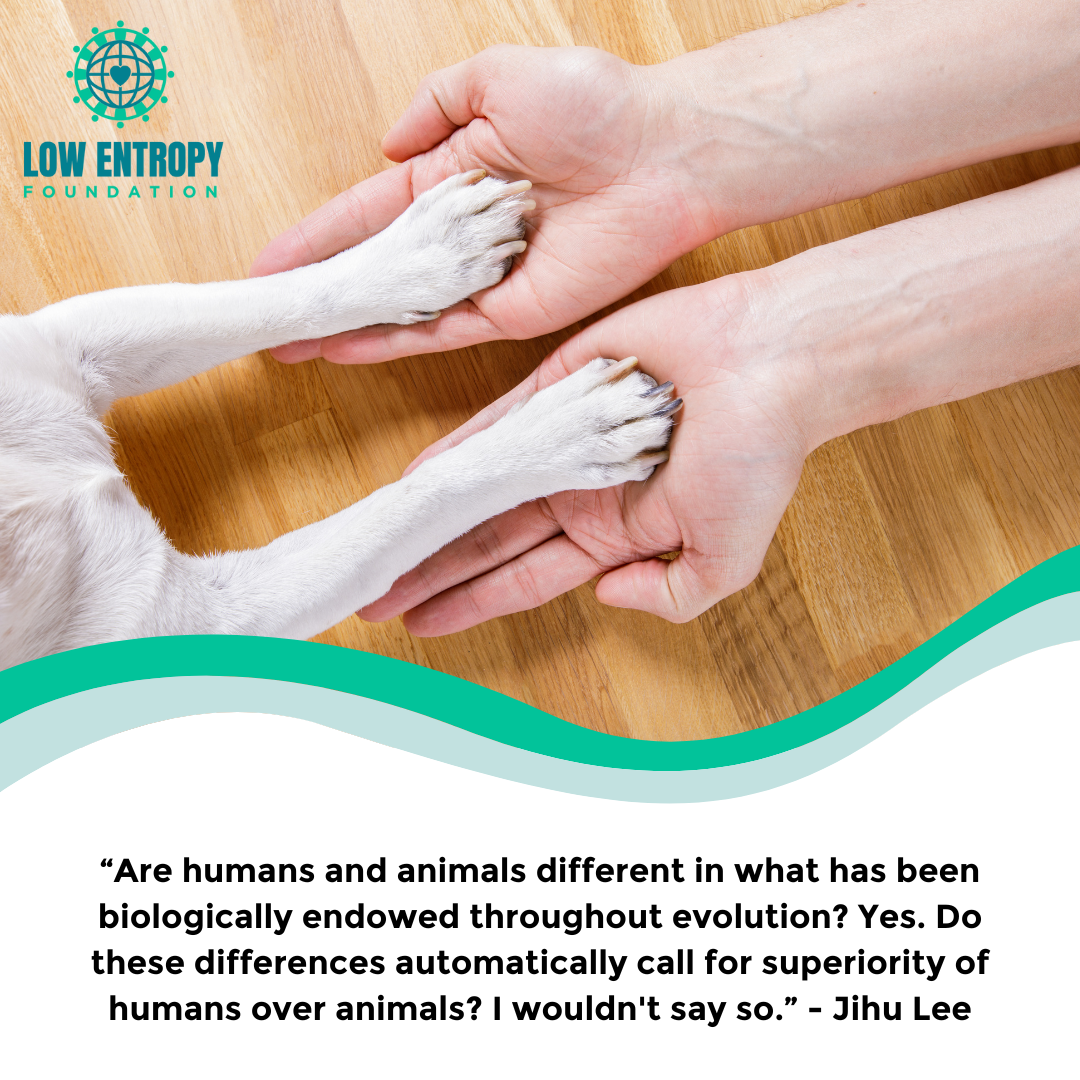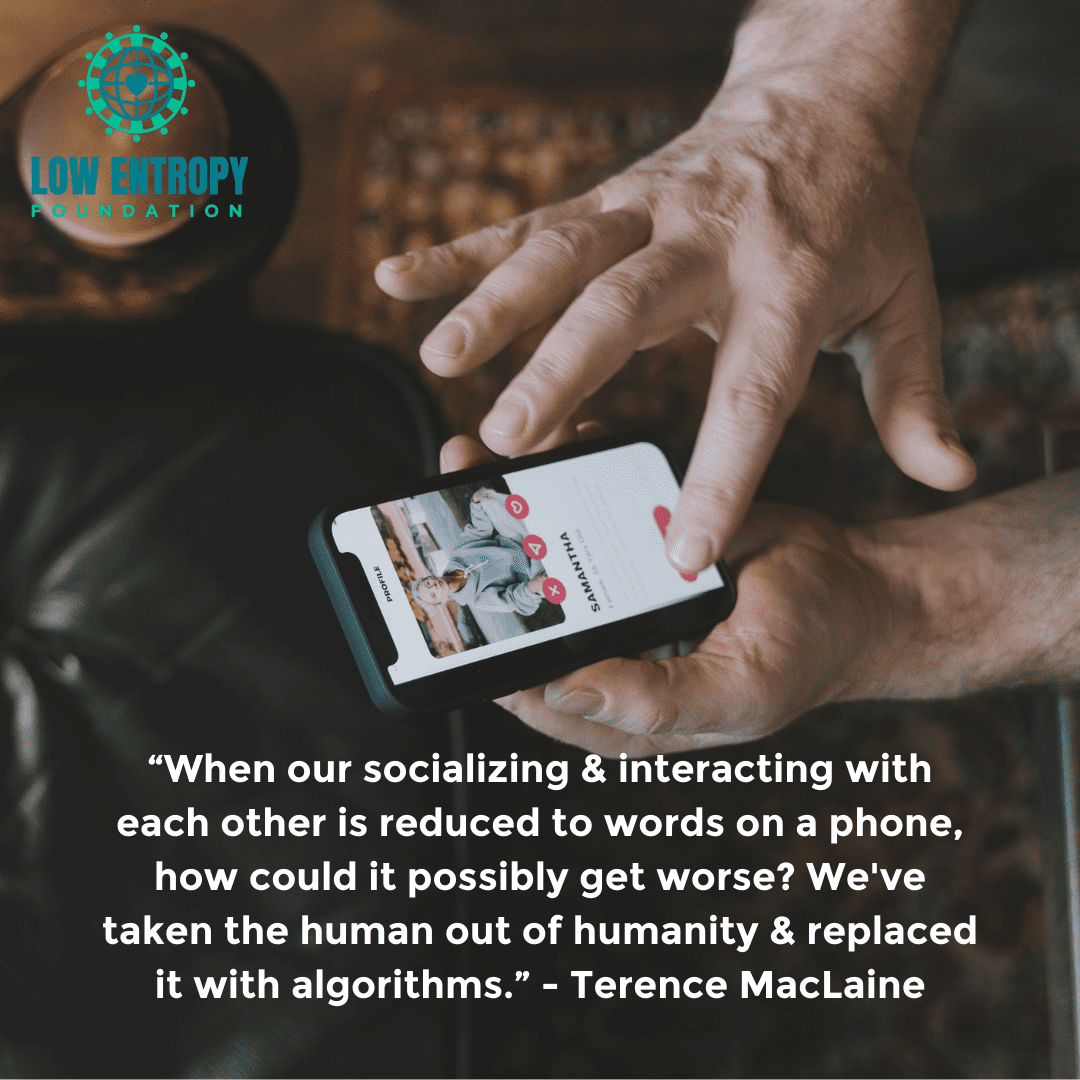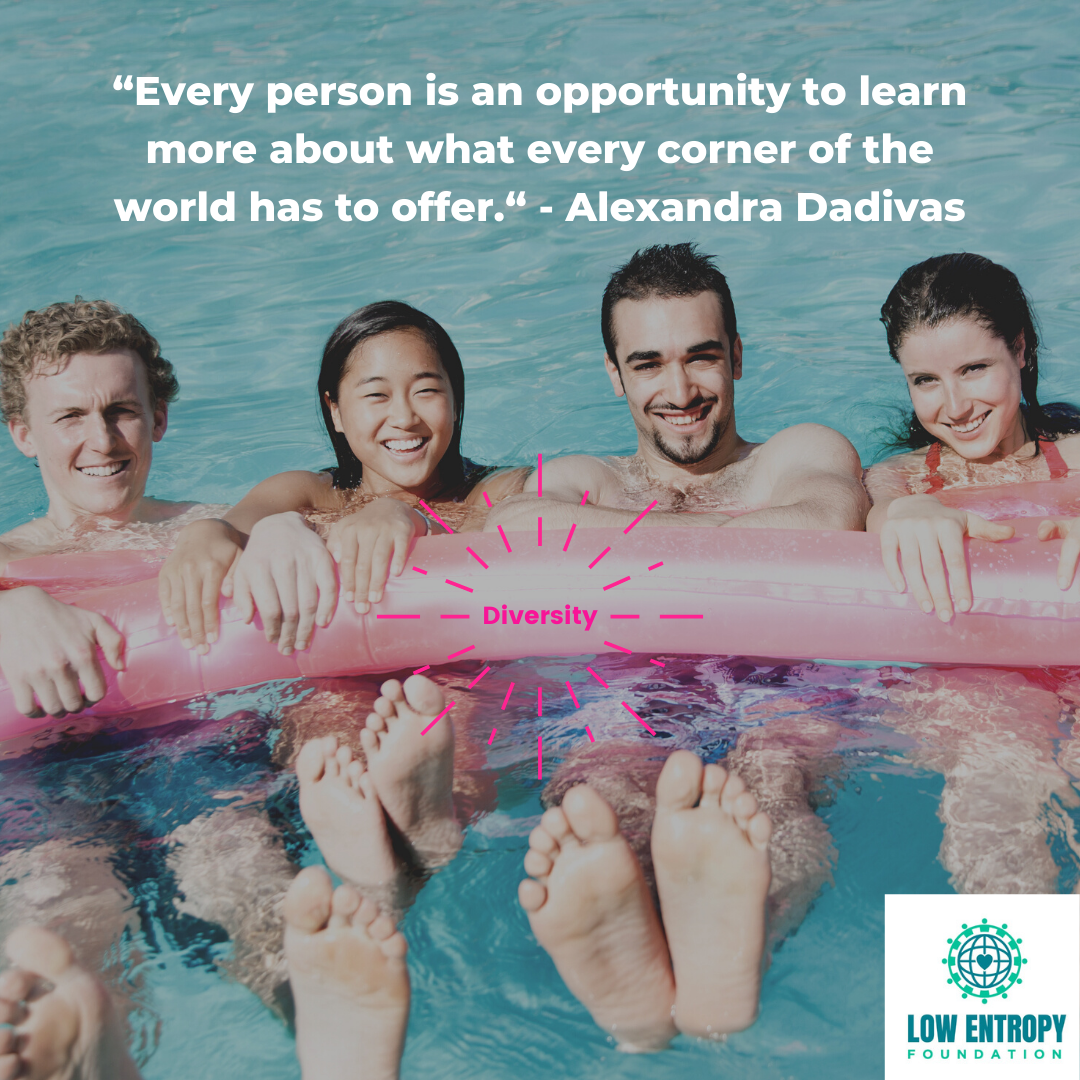Jihu Lee (she/her/hers), Low Entropy Volunteer Writer
It’s common for people to have witnessed eerily human behavior from an animal, especially their pets. My own dogs have shown a range of what is considered typically human behaviors such as spite, empathy and speech comprehension. There have been countless moments when we can argue that dogs are just as intelligent as people – if not more so at times. Indeed, dogs are one of the most intelligent beings in the animal kingdom. Dogs and people also share scientific similarities that can contribute to their respective intelligence levels. In scientific clinical studies of Alzheimer’s disease in humans, dog models provide a useful parallel with the canine ‘equivalent’ of the disease, known as Canine Cognitive Dysfunction.
Among animals as a whole however, there is certainly a wider range of variation in brain structure that leads to different levels of sentience. Many species of animals do not possess the higher order brain functions that are characteristic of humans, endowing us with emotion, speech processing and memory. Thus, we can say that fundamental differences do exist between humans and animals.
In one of my classes this semester called Ethics, Drugs, and Society, we have discussed the ethical dilemma of whether animals are considered to have the same moral standing as human beings, or if they have moral standing at all. In our society, humans are generally deemed as ‘superior’ over animals. Even the countless number of people who wouldn’t dare hurt an animal themselves end up complying to this standard by eating foods made from animals or owning items made from animal skin or fur. One could even argue that owning pets and domesticating animals is a form of assertion of superiority.
That being said, the belief that humans are ‘superior’ to animals largely stems from the fact that animals are fundamentally different from humans and do not possess abilities to speak or communicate clearly with us. If animals did have such capabilities, I am sure our perception of human ‘superiority’ would change.
While acknowledging fundamental differences between humans and animals is one conversation, deciding whether those differences warrant empathy for animals is another. Just because an animal cannot vocalize pain or other emotions in a way that humans can understand should not give us a pass to disregard their well-being. Many animal rights activists firmly hold this belief and abstain from participating in any activity that warrants harm to an animal, including eating animal products. Although it would be difficult for everyone to unanimously agree on an ethical code for animals, I personally believe we should remember that the moral ‘superiority’ of humans is largely a social construct and that harming animals is not warranted just because one happens to be a human. In fact, I would strongly argue that humanity has seen a multitude of cases where we are far from being morally superior to animals.
Again, I think the question of whether humans and animals are really that different has two main parts: fundamental differences between species and the moral implications surrounding those differences. Are humans and animals different in what has been biologically endowed throughout evolution? Yes. Do these differences automatically call for superiority of humans over animals? I wouldn’t say so. But again, in Western society where this belief – subconsciously or not – is ingrained in our culture, it is challenging to come to a consensus for the ethical dilemma. Nevertheless, it is still worth remembering that the differences we are aware of does not justify harmful treatment of animals.
—
My name is Jihu, and I’m from Salt Lake City, Utah! I have been with Low Entropy since May 2021. Some of the things I love are reading, writing, listening to music, playing with my dogs and spending time with my sister!









